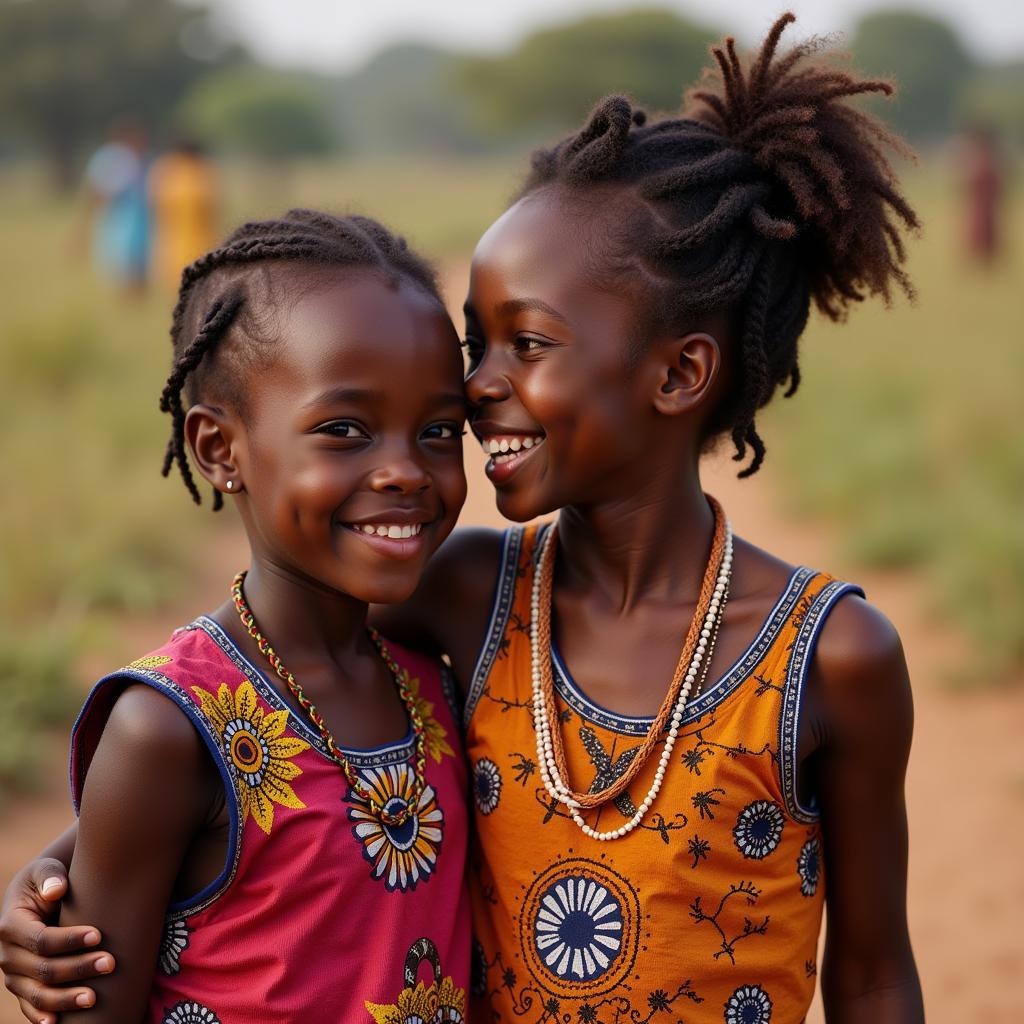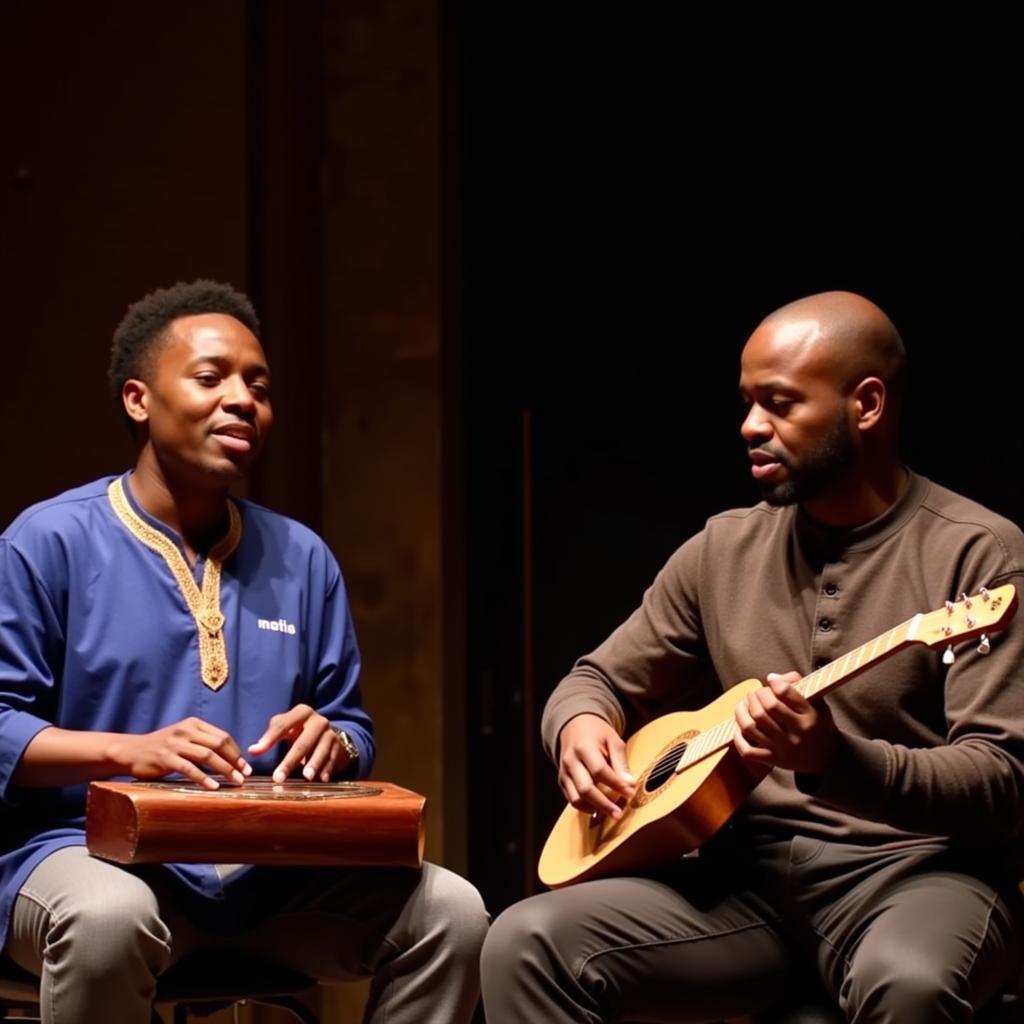The Intriguing Story of African George Fabric from India
African George fabric, a vibrantly colored and intricately patterned material, is a staple in many African wardrobes. Its popularity transcends age, social status, and even national borders. But surprisingly, this fabric synonymous with African identity has its roots not in Africa, but thousands of miles away in India.
A Legacy Woven in Silk: The Indian Connection
The story begins centuries ago, when Indian traders, traveling along established trade routes, introduced luxurious silk fabrics to the shores of West Africa. These silks, particularly a type known as “George,” captivated the locals with their rich textures and opulent designs.
Initially a symbol of wealth and status, the popularity of George fabric gradually spread throughout West African society. Women, particularly in countries like Nigeria and Ghana, embraced the fabric, incorporating it into their traditional attire.
From Silk to Lace: Evolution of a Textile Tradition
Over time, the production of George fabric evolved. While the original Indian versions were primarily silk, West African weavers began to experiment with other fibers, like cotton and rayon, to make the fabric more accessible to a wider population. This shift in production, coupled with the distinctive local designs, marked the birth of what we now know as African George fabric.
A Fusion of Cultures: Indian Inspiration, African Identity
The beauty of African George fabric lies in its unique blend of Indian and African aesthetics. While the production techniques and some design elements pay homage to the fabric’s Indian origins, the vibrant colors, bold patterns, and symbolic motifs reflect the rich cultural heritage of Africa.
Take, for example, the use of Adinkra symbols in Ghanaian George fabric. These symbols, traditionally printed on cloth, represent concepts and proverbs central to Akan culture. Their incorporation into George fabric exemplifies the fusion of Indian craftsmanship and African identity.
Why is African George Fabric Made in India?
The continued production of African George fabric in India, even after centuries, can be attributed to several factors:
- Expertise: Indian manufacturers have centuries of experience in producing high-quality textiles, particularly intricate silk and lace fabrics. This expertise has been passed down through generations, resulting in a level of craftsmanship that remains unmatched.
- Cost-effectiveness: The availability of skilled labor and raw materials in India allows for more cost-effective production compared to many African countries.
- Demand and Supply: The demand for African George fabric remains consistently high, both within Africa and among the African diaspora worldwide. Indian manufacturers have successfully met this demand, establishing themselves as reliable suppliers.
The Enduring Appeal of African George Fabric
Today, African George fabric is more than just a textile; it’s a cultural symbol, a testament to the enduring legacy of trade and cultural exchange between India and Africa. Whether it’s a brightly colored aso-ebi ensemble at a Nigerian wedding or a sophisticated outfit for a special occasion, African George fabric continues to be a vibrant expression of African identity and heritage.
FAQs about African George Fabric from India
1. Is all African George fabric made in India?
While India remains a primary producer, African George fabric is now also manufactured in other countries, including China and Nigeria.
2. How can I differentiate between authentic African George fabric and imitations?
Authentic African George fabric is known for its intricate designs, vibrant colors, and soft texture. Look for fabrics with a slight sheen and a weight that suggests quality.
3. Is African George fabric only used for special occasions?
While often favored for special events, African George fabric is increasingly being incorporated into everyday wear, showcasing its versatility and enduring appeal.
Need More Information on African Life?
Explore our other articles on African fabrics:
Have more questions about African culture? We’re here to help!
Contact us:
- Phone: +255768904061
- Email: kaka.mag@gmail.com
- Address: Mbarali DC Mawindi, Kangaga, Tanzania.
Our dedicated team is available 24/7 to assist you.



